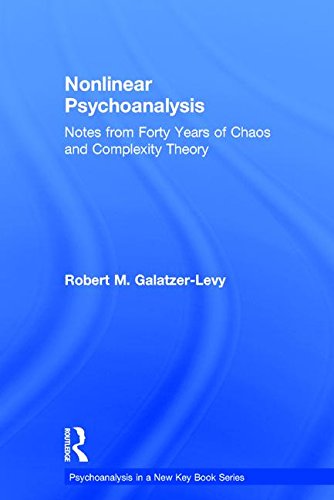

Most ebook files are in PDF format, so you can easily read them using various software such as Foxit Reader or directly on the Google Chrome browser.
Some ebook files are released by publishers in other formats such as .awz, .mobi, .epub, .fb2, etc. You may need to install specific software to read these formats on mobile/PC, such as Calibre.
Please read the tutorial at this link: https://ebookbell.com/faq
We offer FREE conversion to the popular formats you request; however, this may take some time. Therefore, right after payment, please email us, and we will try to provide the service as quickly as possible.
For some exceptional file formats or broken links (if any), please refrain from opening any disputes. Instead, email us first, and we will try to assist within a maximum of 6 hours.
EbookBell Team

4.3
48 reviewsNonlinear concepts from chaos theory, complexity studies, and fractal geometry have transformed the way we think about the mind. Nonlinear Psychoanalysis shows how nonlinear dynamics can be integrated with psychoanalytic thinking to shed new light on psychological development, therapeutic processes, and fundamental psychoanalytic concepts.
Starting with a personal history of the author’s engagement with nonlinear dynamics and psychoanalysis, this book describes how his approach applies to diagnosis of psychological conditions, concepts of normal and pathological development, gender, research methods, and finally the theory and practice of psychoanalysis and psychodynamic psychotherapy. This book is full of new ideas about the basic nonlinear processes of human development, nonlinear views of gender and fundamental psychoanalytic process like working through, and the nature of the therapeutic process as conceptualized in terms of the theory of coupled oscillators. Galatzer-Levy questions many standard psychoanalytic formulations and points to a freer practice of psychoanalysis and psychoanalytic thinking. His new approach opens the reader’s eyes to ways in which development and treatment can occur through processes not now included in standard psychoanalytic theory. The book not only provides useful theories but also helps readers take note of commonly passed over phenomena that were unseen for lack of a theory to explain them.
Galatzer-Levy brings an unusual combination of training in psychiatry, psychoanalysis, and mathematics to this unique study, which summarizes his forty years of exploration of nonlinearity and psychoanalysis. Nonlinear Psychoanalysis will appeal to psychoanalysts and psychotherapists as well as students of nonlinear dynamics systems.